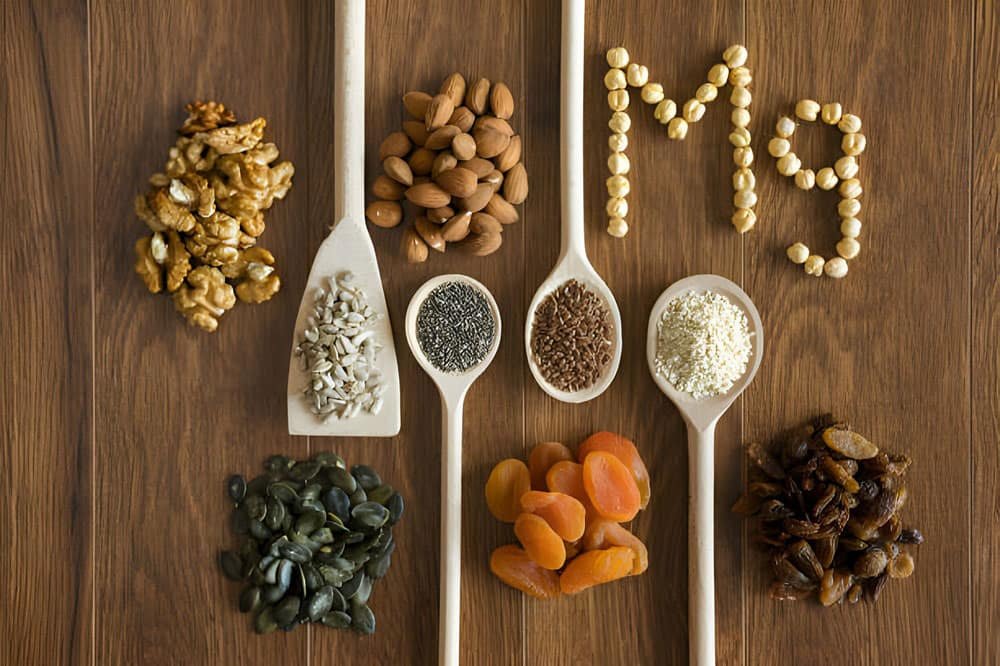
6 Small Super-Seeds Hide The Biggest Health Benefits!
Don’t judge food by its size: These tiny super-seeds have all the essential nutrients like protein, fiber, iron and omega-3 fatty acids your body needs.
At the heart of the nutritional guidelines set by the experts are recommendations for incorporating into our daily diet a variety of proteins as well as healthy monounsaturated and polyunsaturated fats. Seeds provide all three of these nutrients and are plant-based sources of vitamins, fiber, essential amino acids, and minerals such as calcium, zinc, copper, and magnesium—especially important in vegetarian and vegan diets. Seeds are linked to improved cardiovascular, digestive, immune and bone health, blood sugar management, lower risk of obesity and certain cancers.
They are great snacks or added to yogurt and smoothies, soups or salads, giving them extra color and crunch. It is important to remember that a small amount is enough. Choose them raw, or if you prefer, bake them at home to cut down on the calories, oil, salt and other additives that may be found in pre-packaged products. To prevent rancidity and extend the shelf life of higher-fat seeds such as flaxseed, sunflower seed, pumpkin seed and sesame, store them tightly wrapped in the refrigerator or freezer.
Chia seeds
They may have a reputation as one of the newer superfoods, but their history goes back centuries. They easily absorb liquids and create a creamy addition to oats and pancakes. This property also makes them easier on sensitive stomachs. Nutritional value per tablespoon: 2 g protein, 4 g fiber, 1.75 g omega-3 fats. They stabilize blood sugar, promote heart health and increase weight loss. It is an excellent source of magnesium and a good source of calcium.
Linseeds
Nutritional value (per serving): 1 g protein, 2 g fiber, 2 g omega-3. Originally from Mesopotamia, their benefits were known in ancient Greece and Rome. Excellent source of omega-3 and omega-6 essential fats, which are needed for most body functions, as well as dietary fiber and manganese. They are also rich in folate, vitamin B6 and magnesium, phosphorus and copper. In addition, they contain lignans, a type of phytoestrogen, which is believed to relieve menopausal symptoms such as hot flashes. Because they are high in soluble fiber, they are sometimes used for constipation.
Hemp seeds
Consuming hemp seeds is becoming more and more popular. As they are versatile and similar in flavor to sunflower seeds, they can be eaten raw or baked into yogurt or salads or ground into butter. Nutritional value (per kg): 4 g of protein, 16% of the daily recommended intake of phosphorus and magnesium, 1 g of omega-3 fats. It is also a rich source of γ-linoleic acids. They contain 10 essential amino acids and because they consist of over 30% pure protein, they are an excellent daily source of them. They contain 40% fiber, the highest percentage of any seed on earth. They promote cardiovascular health and the anti-inflammatory properties of their omega-3 fats fight eczema and other chronic inflammatory diseases.
Pumpkin seeds
In China the pumpkin is called the Emperor of the Sun and has become the symbol of fruitfulness. Pumpkin seeds are rich in the amino acids alanine, glycine and glutamic acid and are a good source of zinc and omega-3 fats. They also contain protein, iron and phosphorus and are low in carbohydrates. They have long been used to treat prostate disorders as they contain cucurbitacin, a substance thought to help prevent the conversion of testosterone to dihydrotestosterone, high levels of which can encourage prostate enlargement. They also help with urinary tract infections in women. They promote good skeletal health and because they are rich in phytosterols, they help maintain cholesterol levels and boost the immune response.
Sesame
These tiny seeds are regarded throughout the East as symbols of immortality. They are packed with protein, iron, zinc, magnesium, calcium and phytic acid while being low in carbohydrates. They also contain sesamin and sesamolin, substances that can help lower cholesterol levels. It is a well-known source of vitamin E, omega-6 and monounsaturated fats. All of the above can prevent inflammation of the arteries and help to strengthen the elasticity of the skin, digestion, stimulation of blood circulation and good functioning of the nervous system. They reduce blood pressure and protect the liver from damage.
Sunflower seeds
They are rich in B vitamins that are essential for a healthy nervous system and are a good source of phosphorus, magnesium, iron, calcium, potassium, protein and vitamin E. They also contain trace elements, zinc, manganese, copper, chromium and carotene, as well as monounsaturated and polyunsaturated fatty acids. As a good natural source of zinc, sunflower seeds are popular immune boosters. They can also help protect against heart disease, while vitamin B can help fight stress. They promote healthy digestion and increase fiber intake. Sunflower seeds are also extremely rich in folic acid, a very important nutrient for women.